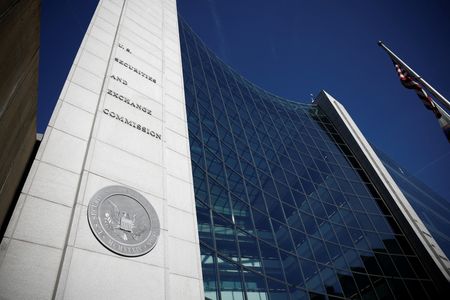By Laila Bassam, Timour Azhari, Maya Gebeily and Tom Perry
BEIRUT (Reuters) -Iran-backed Hezbollah has been dealt a blow in Lebanon’s parliamentary election with preliminary results showing losses for some of its oldest allies and the Saudi-aligned Lebanese Forces party declaring significant gains.
With votes still being counted, the final results have yet to emerge for the first election since Lebanon’s devastating economic meltdown and a huge port explosion in 2020 that shattered Beirut.
The heavily armed Shi’ite Muslim group Hezbollah and its allies won 71 of parliament’s 128 seats when Lebanon last voted in 2018, but whether they can cling on to a majority hinges on results not yet finalised – including Sunni Muslim seats.
Results declared point to a more fragmented parliament sharply polarised between allies and opponents of Hezbollah, an outcome analysts said could lead to deadlock as factions hash out a powersharing deal over top state positions.
“If the deals of the past are dead, what kind of politics do we have apart from more sectarian tensions and a replay of some of the clashes we have seen?” said Mohanad Hage Ali of the Carnegie Middle East Center.
While the 2018 vote pulled Lebanon deeper into the orbit of Shi’ite Muslim-led Iran, this result could open the door for Sunni Muslim-led Saudi Arabia to exercise greater sway in a country that has long been an arena of its rivalry with Tehran, he added.
In one of the most startling upsets, Hezbollah-allied Druze politician Talal Arslan, scion of one of Lebanon’s oldest political dynasties who was first elected in 1992, lost his seat to Mark Daou, a newcomer running on a reform agenda, according to the latter’s campaign manager and a Hezbollah official.
Initial results also indicated wins for at least five other independents who have campaigned to reform and bring to account politicians blamed for steering Lebanon into the worst crisis since its 1975-90 civil war.
“MAJOR BLOW”
Gains reported by the Lebanese Forces (LF), which is vehemently opposed to Hezbollah, mean it would overtake the Hezbollah-allied Free Patriotic Movement (FPM) as the biggest Christian party in parliament.
The LF won at least 20 seats, up from 15 in 2018, said the head of its press office, Antoinette Geagea.
The FPM had won up to 16 seats, down from 18 in 2018, Sayed Younes, the head of its electoral machine, told Reuters.
The FPM has been the biggest Christian party in parliament since its founder, President Michel Aoun, returned from exile in 2005 in France. Aoun and LF leader Samir Geagea were civil war adversaries.
The LF, established as a militia during Lebanon’s 15-year civil war, has repeatedly called for Hezbollah to give up its arsenal.
“Hezbollah’s Christian allies have lost the claim to represent the majority of Christians,” said Hage Ali, describing it as a “major blow” to the Shi’ite group’s claim of having cross-sectarian support for its powerful arsenal.
Hezbollah and its ally, the Amal Movement of Parliament Speaker Nabih Berri, maintained their dominance of Shi’ite Muslim representation, winning all the seats set reserved for their sect, according preliminary numbers from the two parties.
It remains to be seen whether Hezbollah’s allies scooped up seats left empty by the withdrawal of leading Sunni politician Saad al-Hariri, particularly in Beirut and northern Lebanon.
The next parliament must elect a speaker – a post held by Berri since 1992 – before nominating a prime minister to form a cabinet. Later this year, lawmakers are due to elect a president to replace Aoun, whose term ends on Oct. 31.
Any delay in the cabinet formation – a process that can take months – would spell further delay to reforms needed to tackle the economic crisis and unlock support from the International Monetary Fund and donor nations.
An opposition candidate also made a breakthrough in an area of southern Lebanon dominated by Hezbollah.
Elias Jradi, an eye doctor, won an Orthodox Christian seat previously held by Assaad Hardan of the Syrian Socialist Nationalist Party, a close Hezbollah ally and MP since 1992, two Hezbollah officials said.
“It’s a new beginning for the south and for Lebanon as a whole,” Jradi told Reuters.
Nadim Houry, executive director of Arab Reform Initiative, said the results of 14 or 15 seats would determine the majority.
“You are going to have two blocs opposed to each other – on the one hand Hezbollah and its allies, and on the other the Lebanese Forces and its allies, and in the middle these new voices that will enter,” he said.
(Reporting by Laila Bassam, Timour Azhari, Maya Gebeily and Tom Perry; Additional reporting by Lina Najem; Writing by Tom Perry and Maya Gebeily; Editing by Clarence Fernandez and Ed Osmond)












